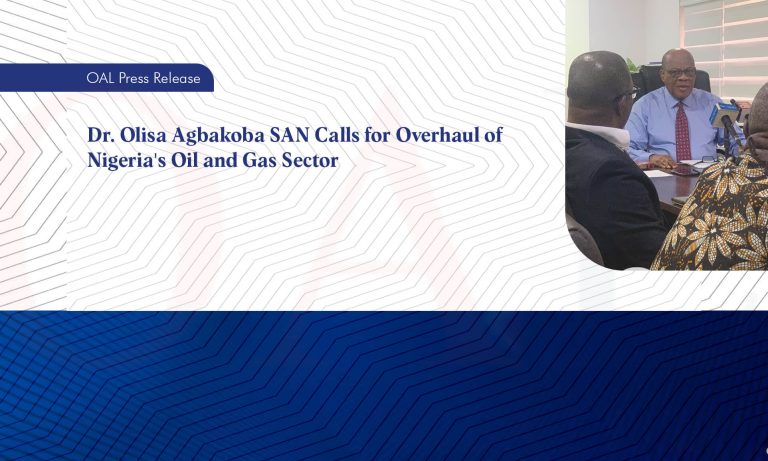

Space policy is the political decision-making process for and application of a state’s public policy regarding space flights and uses of outer space, for civil and military purposes. It sets out a nation’s commitment to leading in the constructive and responsible use of space, promoting a robust commercial space industry, leading in exploration, and defending the state’s interests in space. A sound space policy recognizes that a robust, innovative, and competitive commercial space sector is foundational to economic development, continued progress, and sustained leadership in space.
Nigeria was one of the first African nations to develop a national space policy. The National Space Policy (NSP) was developed and approved in 2000, and a 25-year roadmap for its implementation was endorsed in 2005. The main goals were for the Nigerian space program to: manufacture a Nigerian satellite; have a Nigerian astronaut; and create a Nigerian launch vehicle to launch Nigerian-made satellites from a spaceport located in Nigeria. The Space policy was operated on three wheels bordering on public-private partnership; this involves short, medium, and long-term plans. Within the short-term plan, the government is responsible for all investments in space technology development. In the medium term, the government implements the partial commercialization of space products and services developed during the short-term economic development plan. In the long-term plan, the government partners with the private sector to implement the public-private partnership framework for the space program.
Also read: Developing Nigeria’s Space industry: The need for a more definitive legal framework
Consequently, six research centres and two companies were established within the short-term economic development plan. The research centres are the Centre for Remote Sensing, Jos; Centre for Satellite Technology Development, Abuja; Centre for Geodesy and Geodynamics, Toro; Centre for Space Transport and Propulsion, Epe; Centre for Basic Space Science and Astronomy, Nsukka; and Centre for Space Science and Technology Education, Ile-Ife. The two companies are the Nigeria Communication Satellite(NigComSat) Limited and GeoApps Plus Limited (previously called Nigeriasat Imageries and Consultancy Services Limited). NigComSat Limited was set up in April 2006 to market products from Nigerian communication satellites. Similarly, GeoApps Plus Limited was established in September 2007 to market products from the Nigerian earth observation satellites.

Nigeria was one of the first African nations to develop a national space policy. The National Space Policy (NSP) was developed and approved in 2000, and a 25-year roadmap for its implementation was endorsed in 2005. The main goals were for the Nigerian space program to: manufacture a Nigerian satellite; have a Nigerian astronaut; and create a Nigerian launch vehicle to launch Nigerian-made satellites from a spaceport located in Nigeria.
In a bid to entertain more participation in Space activities, the National Space Research and Development Agency Act 2010 (NASRDA Act) was enacted. The NASRDA Act established the National Space Research and Development Agency (NASRDA) and served as a regulation for space activities within Nigeria by both citizens and non‐citizens. The National Space Council (NSC) became Nigeria’s space regulator. The NSC was responsible for issuing licenses to private innovators to participate in the sector. This was towards enforcing the medium-term plan of the national space policy. The results were impressive as several companies joined the space sector and contributed to its continued growth. This growth did not leave out NASRDA, as several kinds of research were conducted in satellite technology such as; Earth observation (EO) satellites, Communication satellites, Meteorological satellites, and Navigational satellites.
However, the current focus of the space program involves the development of Earth observation and communication satellites. Nigeria has since launched six satellites namely: NigeriaSat-1 (2003), NigComSat-1 (2007), NigeriaSat-2 (2011), Nigeriasat-X (2011), NigComSat-1R (2011) and NigeriaEduSat-1 (2017). The success of these programs should signify that the Nigeria Space Policy has been successful; however, as the country moves closer to its 2025 policy deadline, there is a lot left undone. One of the cardinal objectives of the space policy was to establish a full-capacity rocket launch facility in Nigeria. Despite having barely 3 years left of its policy, Nigeria only has a rocket testing facility. Related to this is the promise of launching Nigeria’s first astronaut by 2030. Despite the promise of being a prime satellite manufacturer in Africa, most of Nigeria’s satellites have been manufactured by non-Nigerian entities, with only a fraction of input from Nigerian institutions. This was one of the big promises and benchmarks for the space policy, and Nigeria is defaulting. By now, Nigeria should have started working on the final stages of its economic plan, wherein Government now focuses extensively on regulatory and supervisory roles, allowing for a more vibrant space economy. Unfortunately, this is not the case.
As Nigeria begins the process of developing a new space policy, the focus should be on sustaining and consolidating existing achievements, demonstrating Nigeria’s commitment to space exploration and utilization. The new space policy should be about having a robust and competitive commercial space sector. This is especially important in light of growing private sector interest in Nigeria. The policy should strengthen and encourage public-private partnerships by ensuring regulatory licensing processes of space systems and services are transparent and consistent with national goals. It should also work to reduce regulatory burden and create the flexibility necessary to accommodate innovation and technological demands by identifying key suppliers and manufacturers and incentivizing them to invest in Nigeria. It should also facilitate new market opportunities for Nigeria’s commercial space capabilities and services. Space technology will power the next industrial revolution and so Nigeria’s space policy should be tailored to position Nigeria as a leader in Africa.
REFERENCES
- Office of Space Commerce. National Space Policy for the United States of America(2020)<https://www.space.commerce.gov/policy/national-space-policy/>accessed on 18 August 2022
- Goldman, Nathan C. (1992). Space Policy: An Introduction. Ames, IA: Iowa State University Press. p. vii. ISBN0-8138-1024-8.
- Magda Cocco and Helena Correia. Space in Africa: Formulating Space Policies and Laws for Development and Growth in African Countries <https://africanews.space/formulating-space-policies-and-laws-for-development-and-growth-in-african-countries/>accessed on 18 August 2022
- Space in Africa, Nigeria’s Space Policy is Years Behind Schedule but has Some Notable Achievements (2020) <https://africanews.space/nigerias-space-policy-is-years-behind-schedule-but-has-some-notable-achievements/> accessed on 7 August 2022
- Space in Africa. Nigeria to Revise its National Space Policy and Strategy (2020) <https://africanews.space/nigeria-to-revise-its-national-space-policy-and-strategy/> accessed on 2 August 2022
- National Space Research and Development Agency Act 2010 (NASRDA)
[maxbutton id=”1″ url=”https://oal.law/data/uploads/2022/08/Developing-a-New-National-Space-Policy-for-Nigeria.pdf” text=”Download Article” ]
Author



